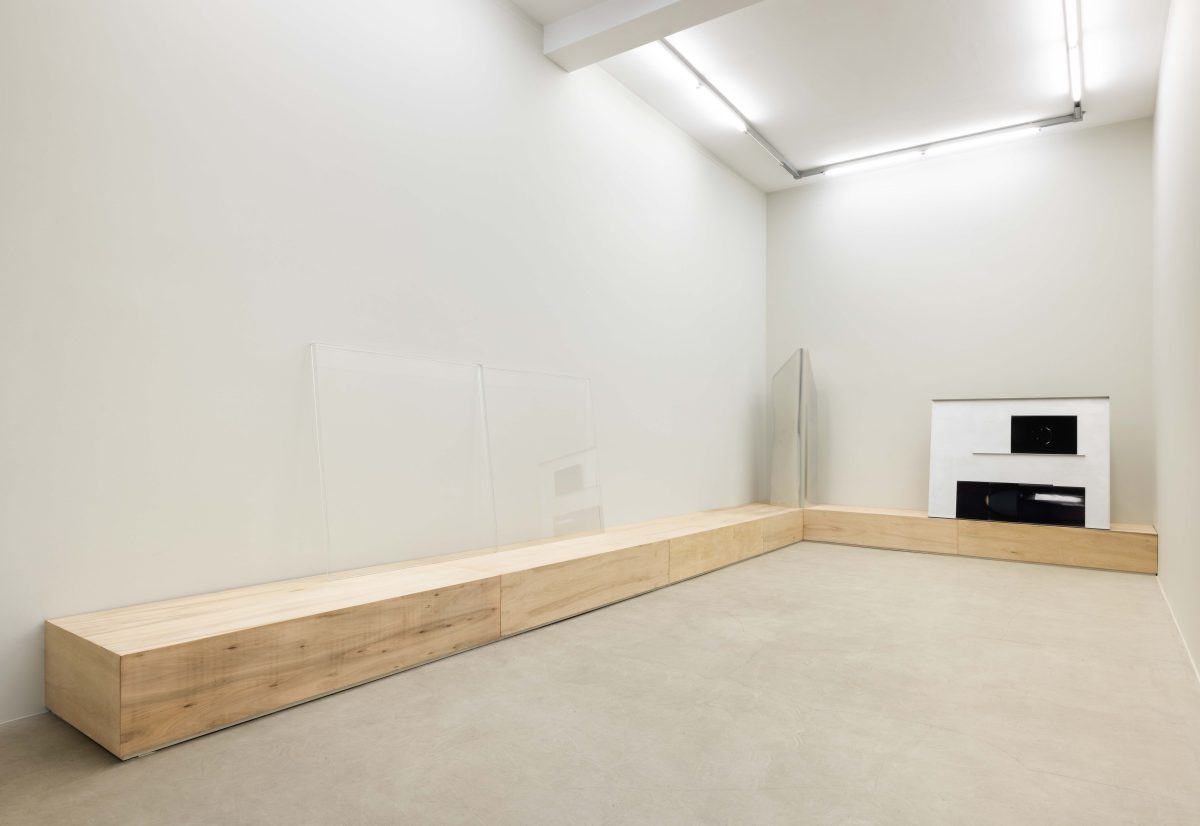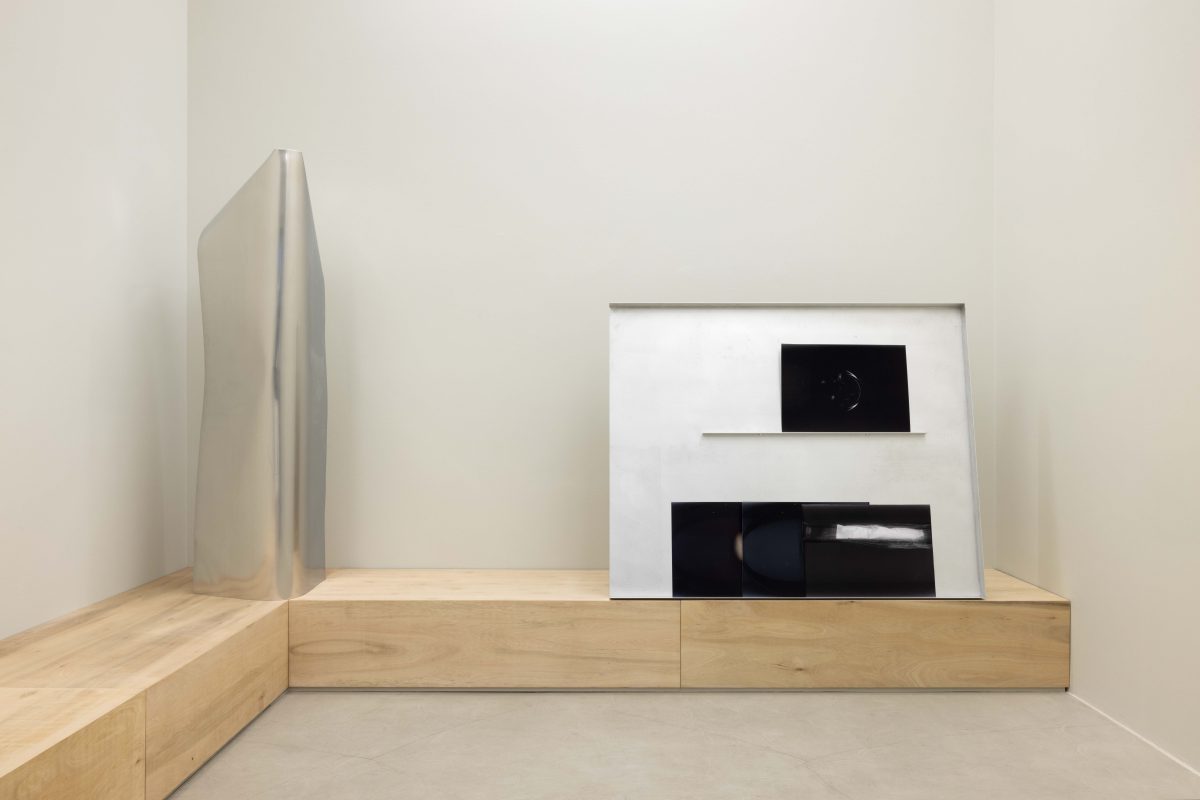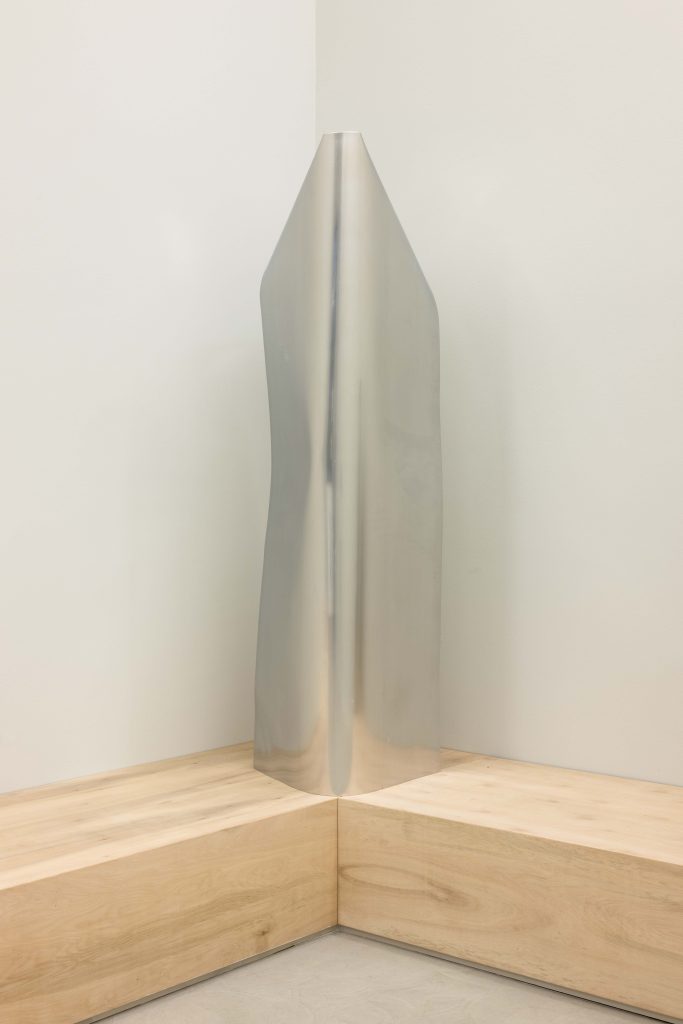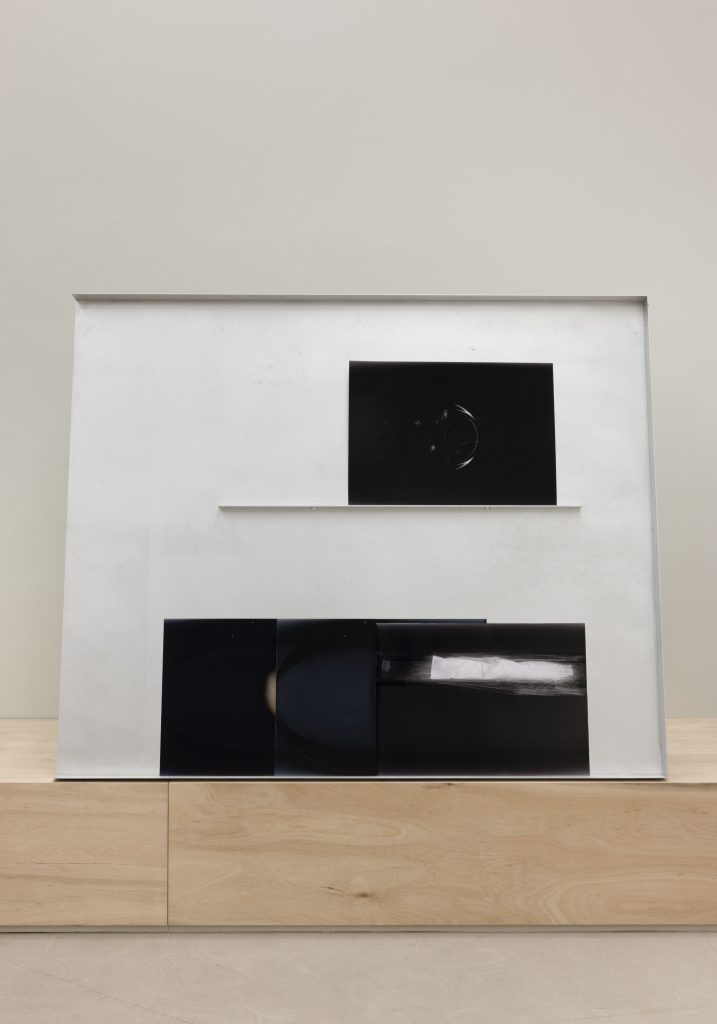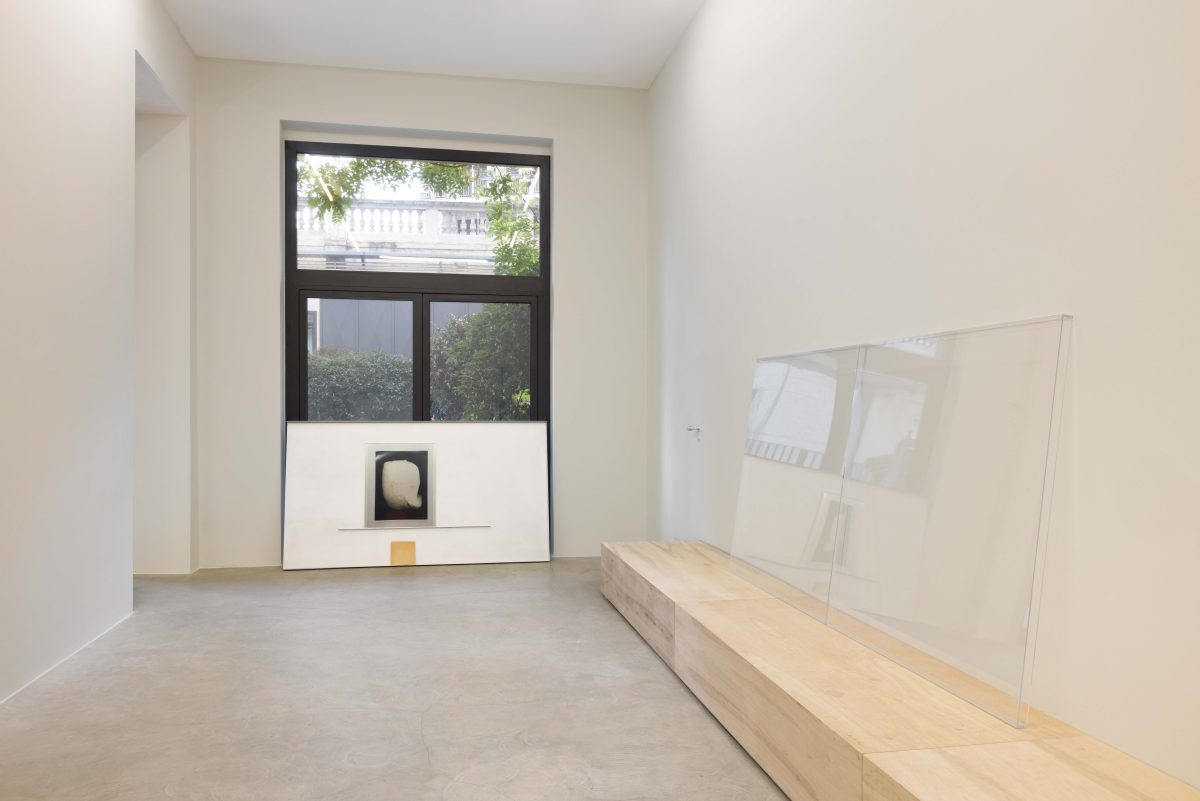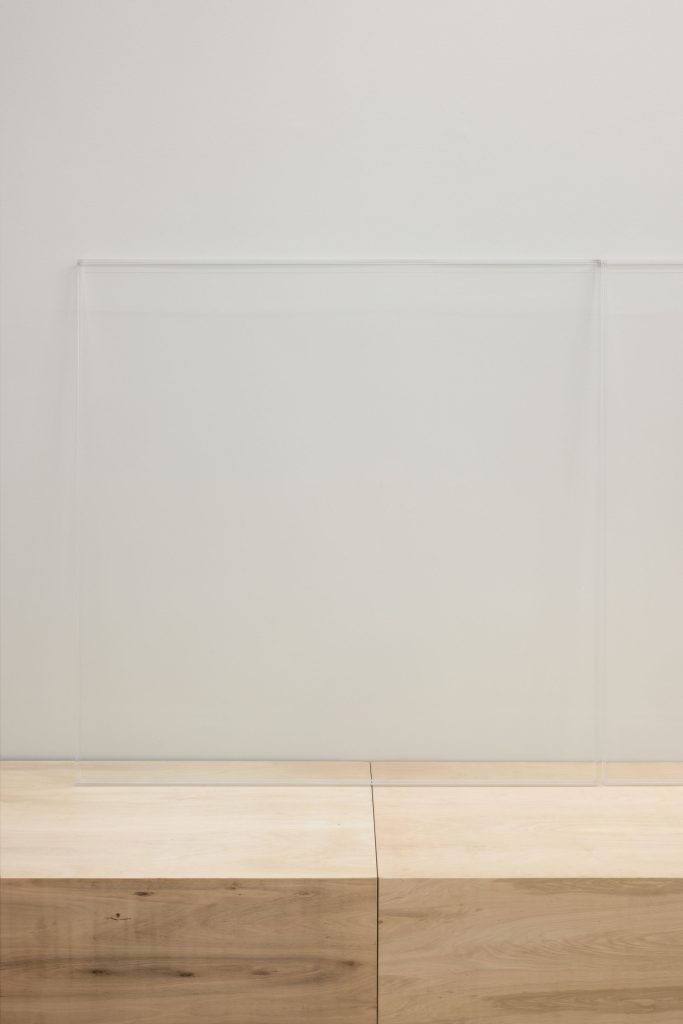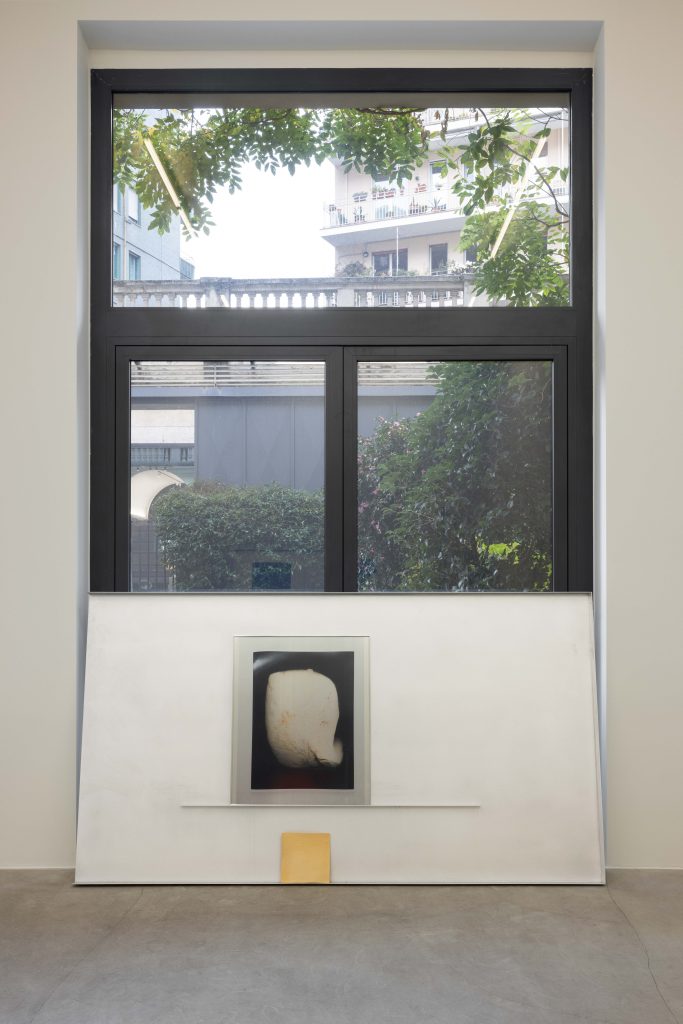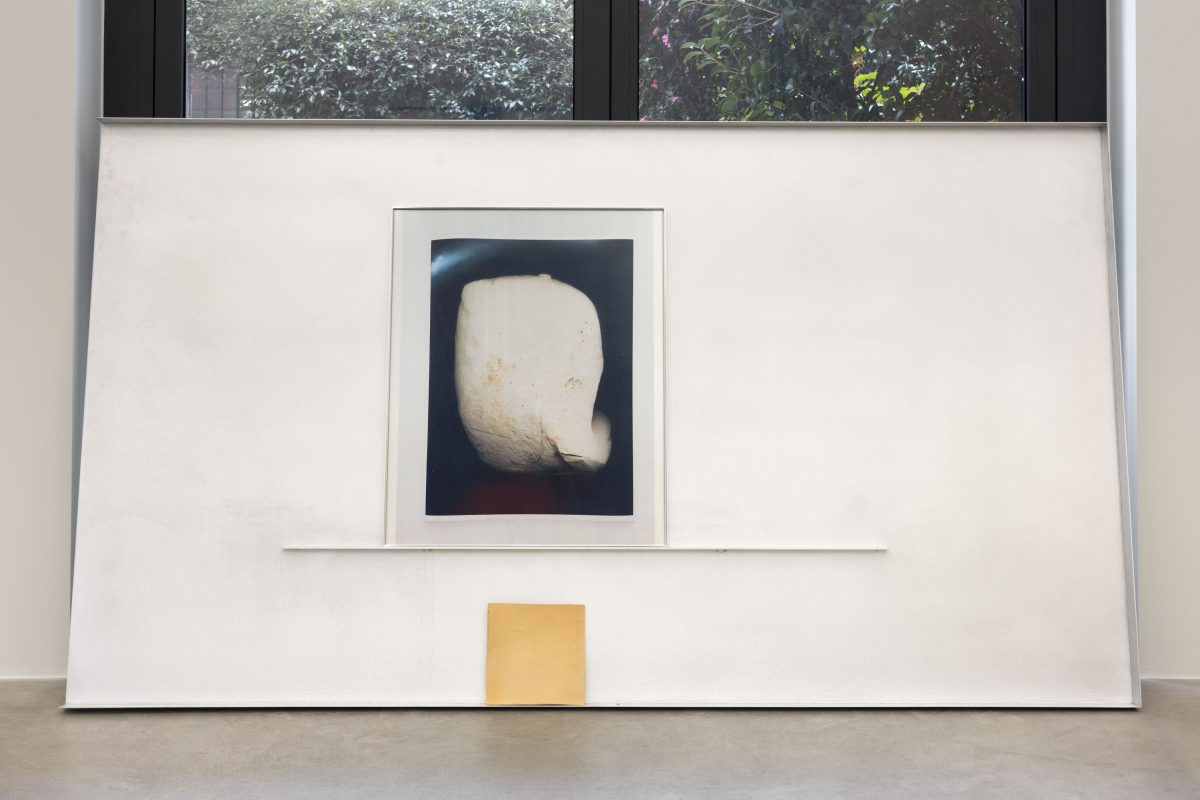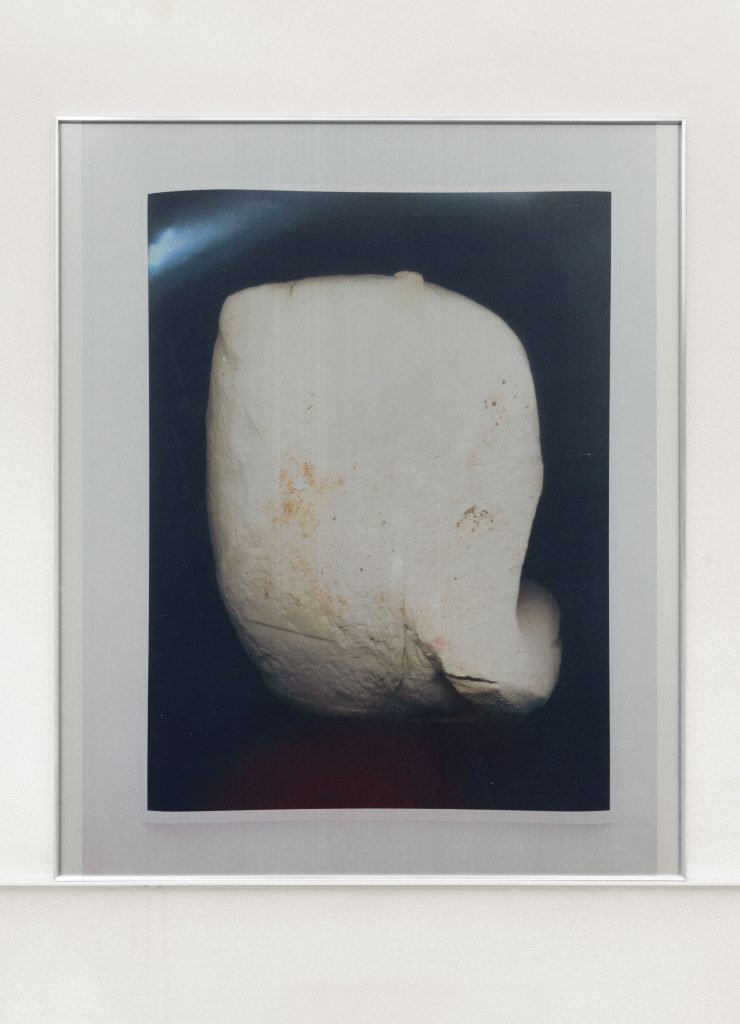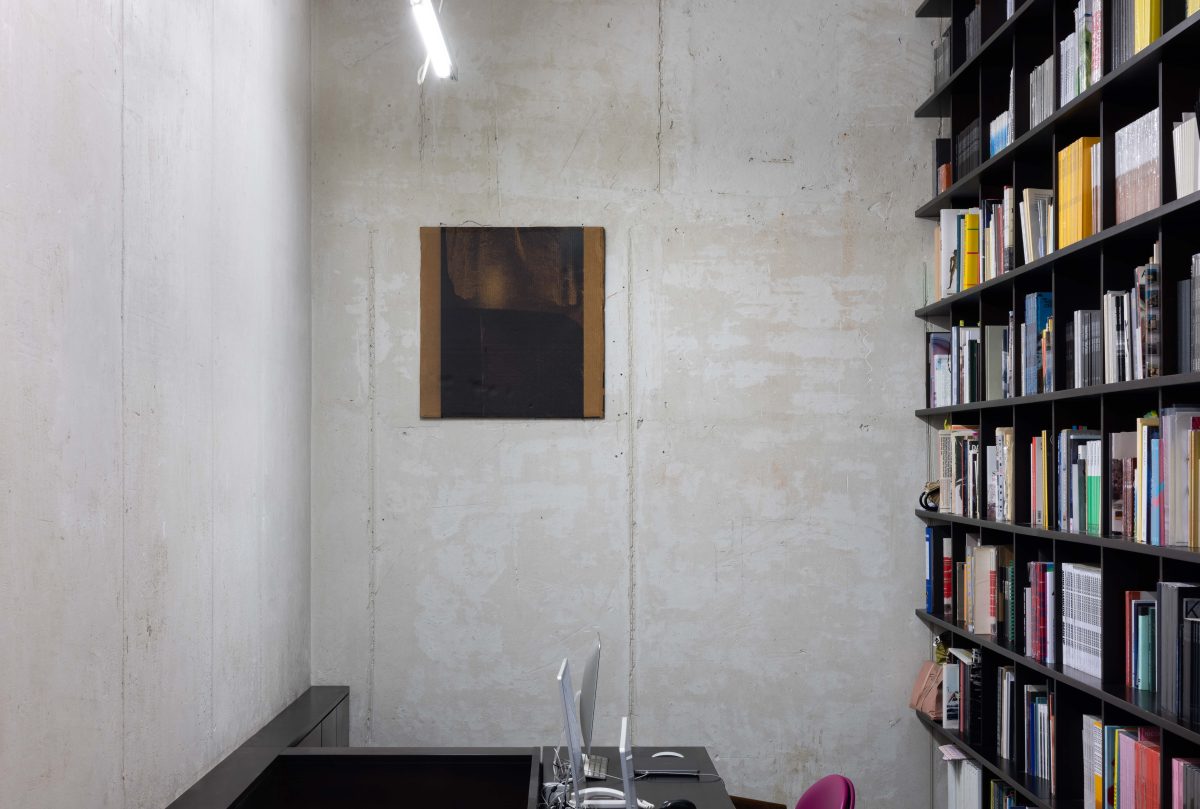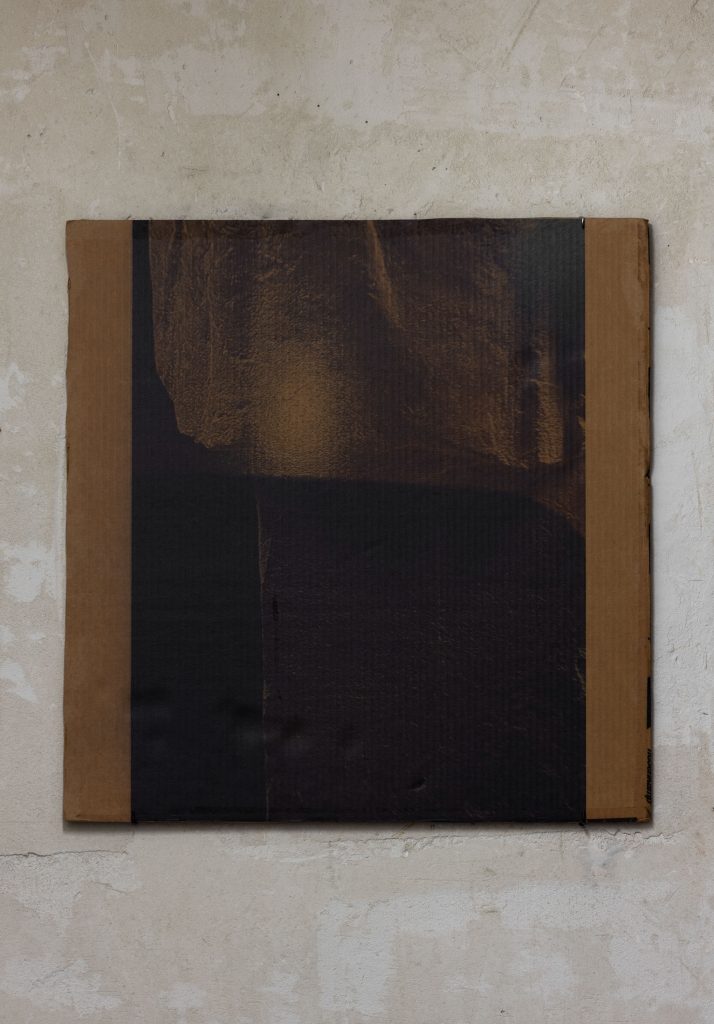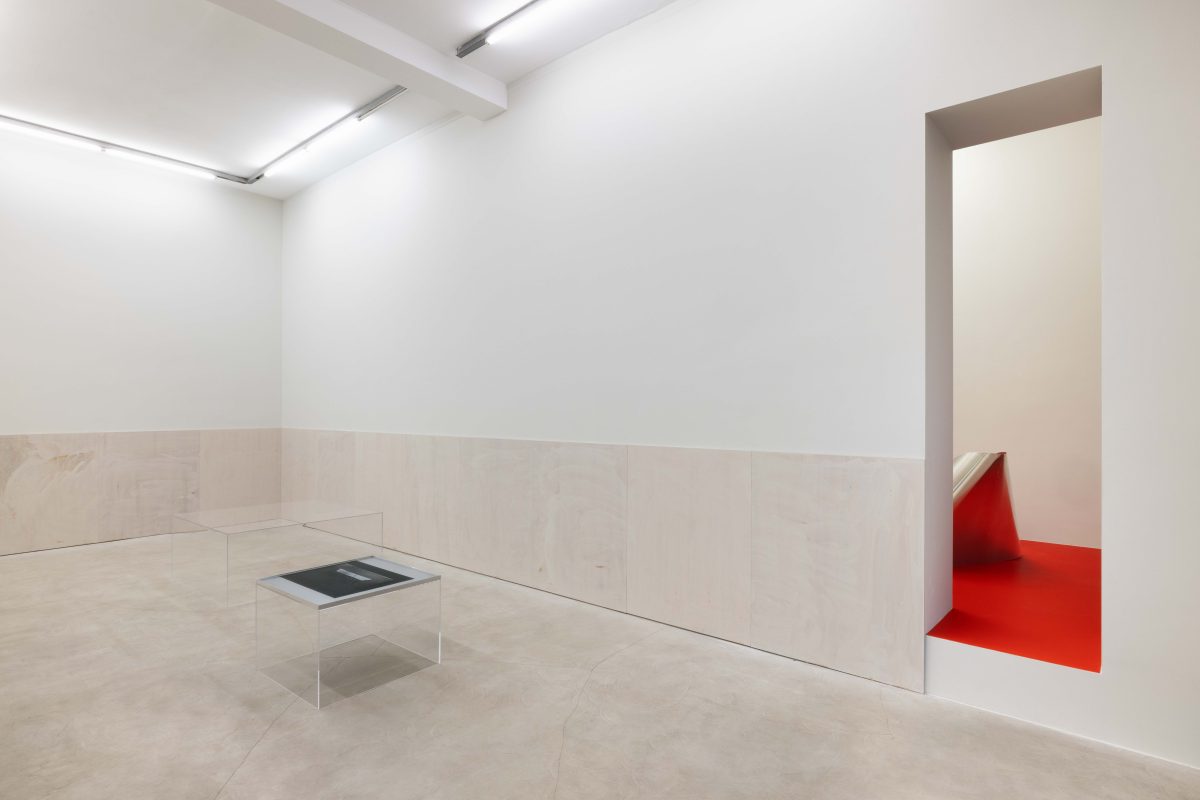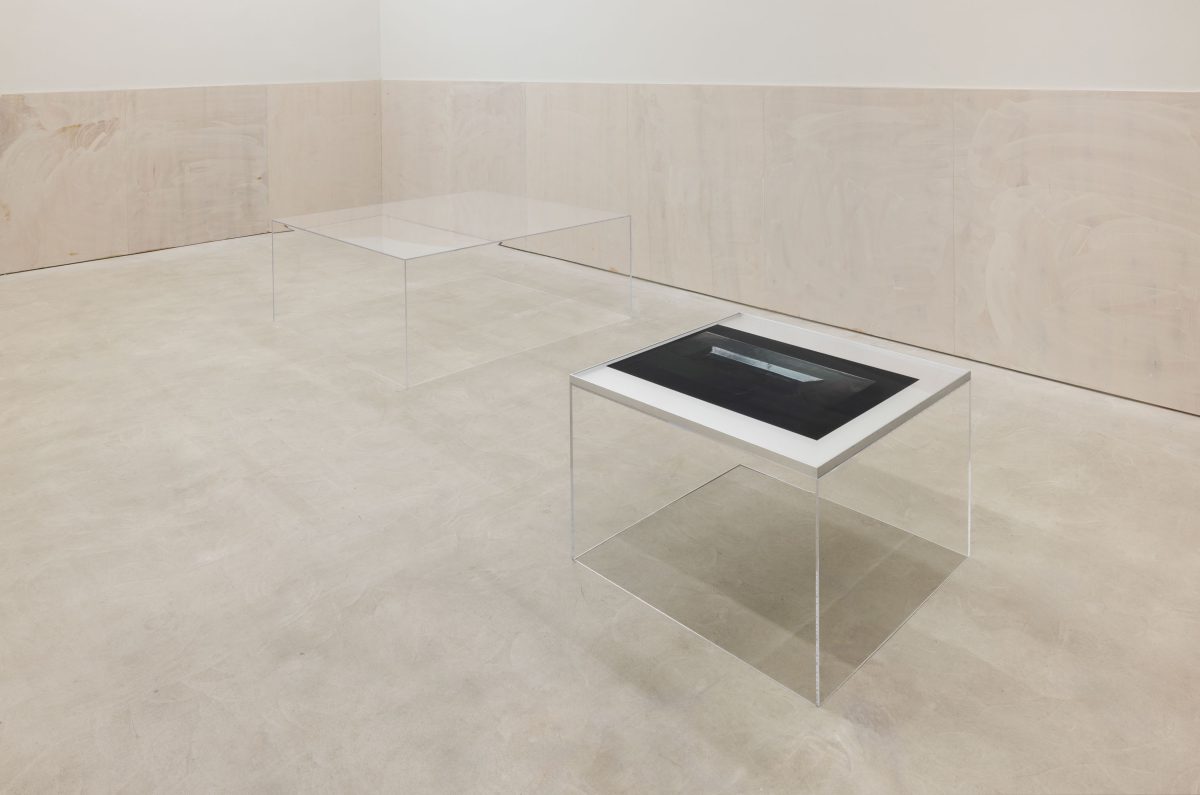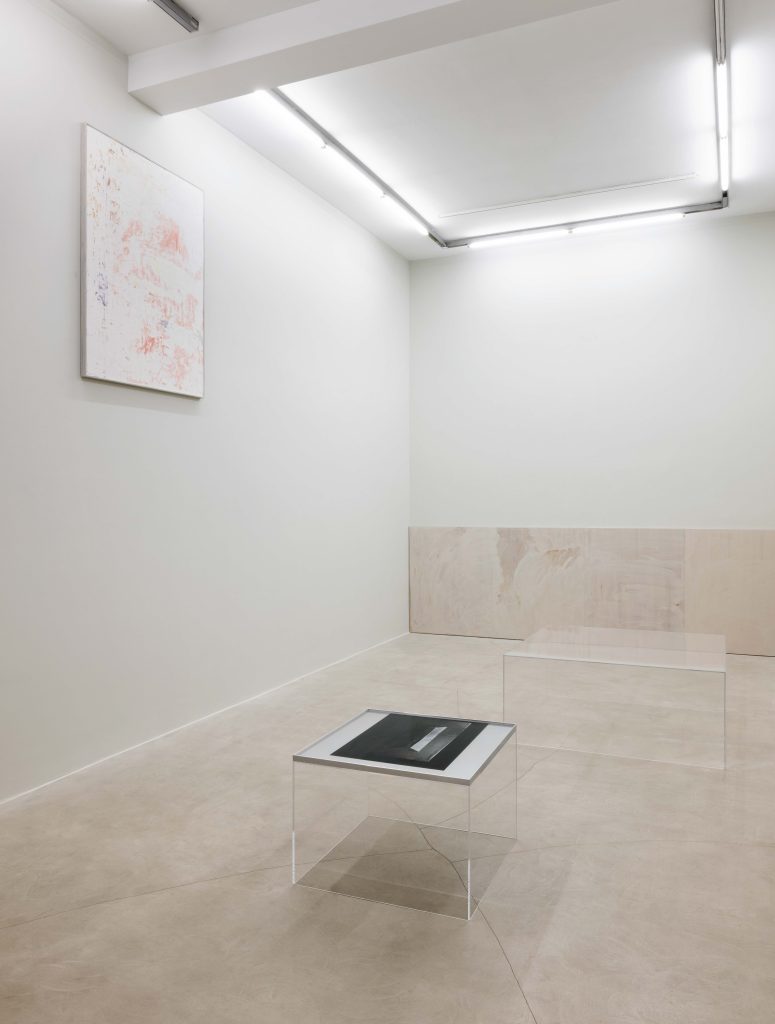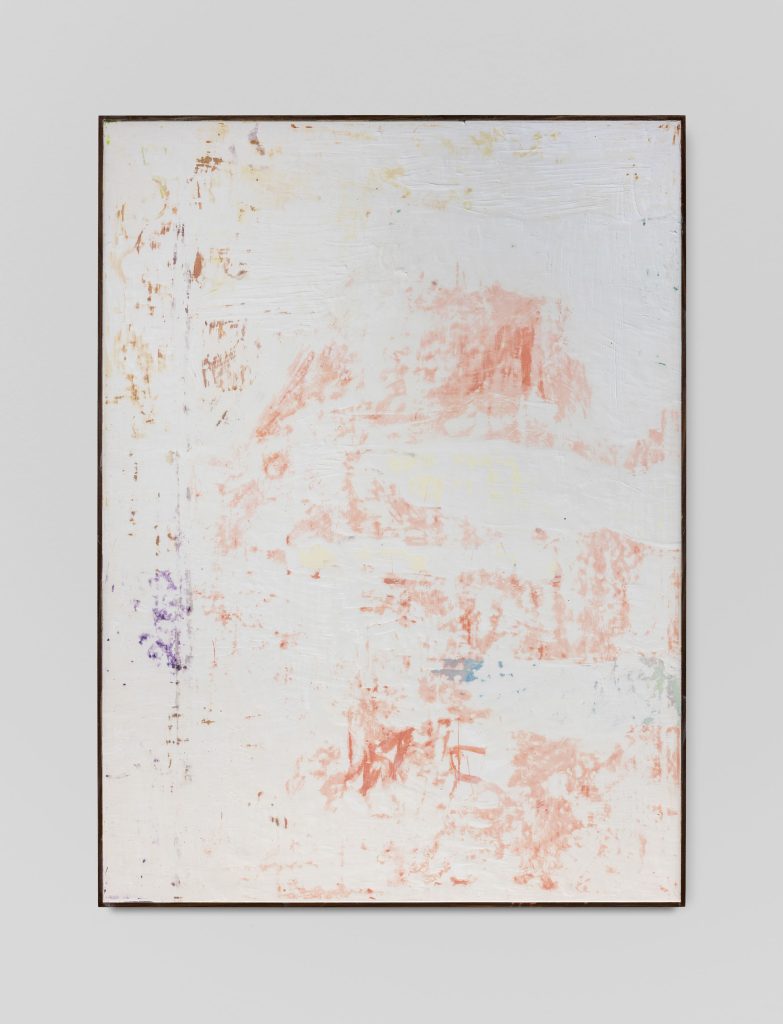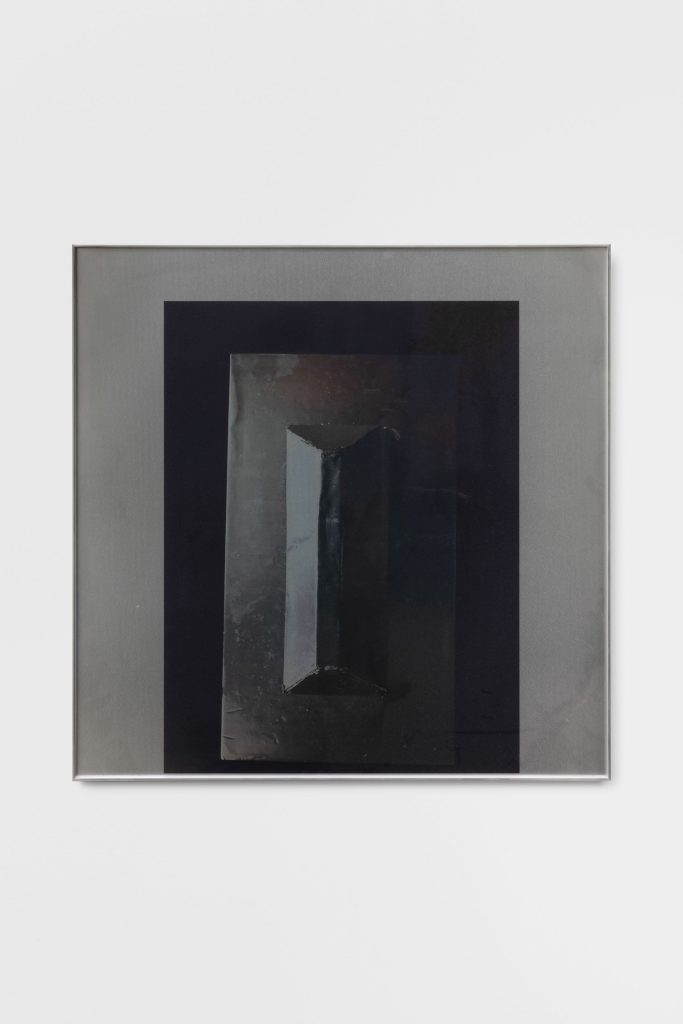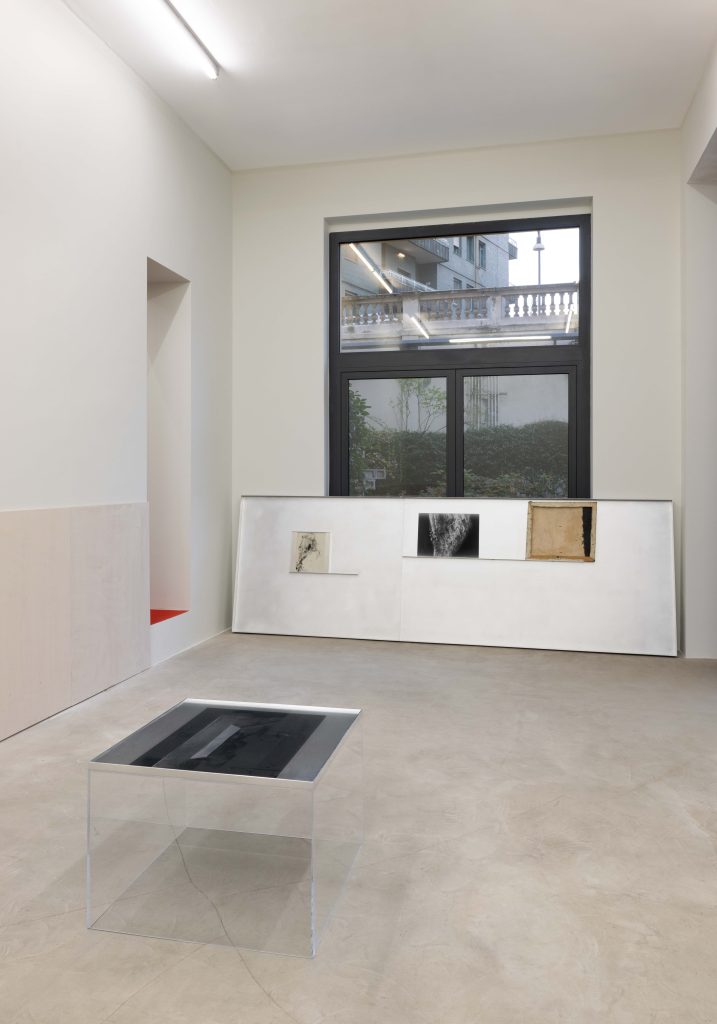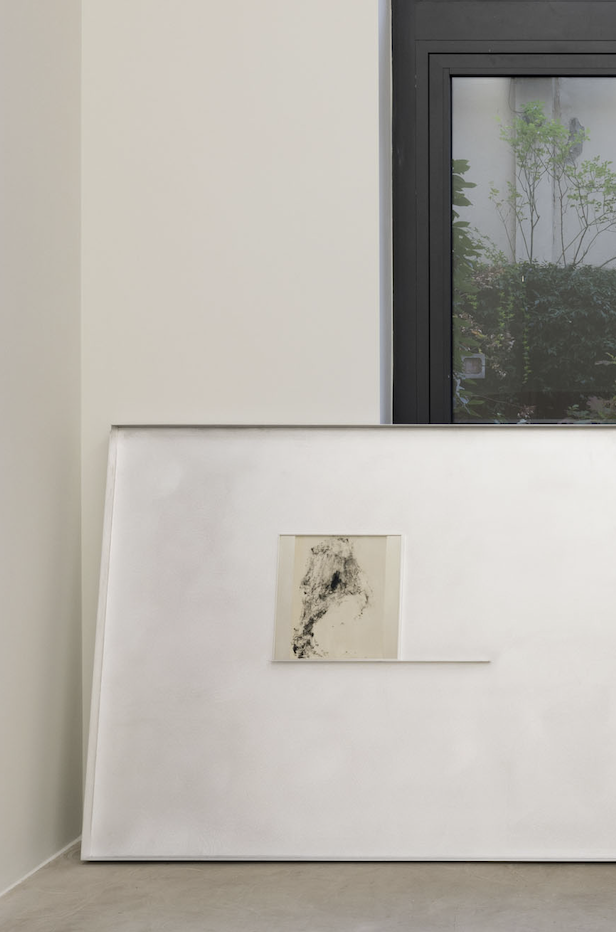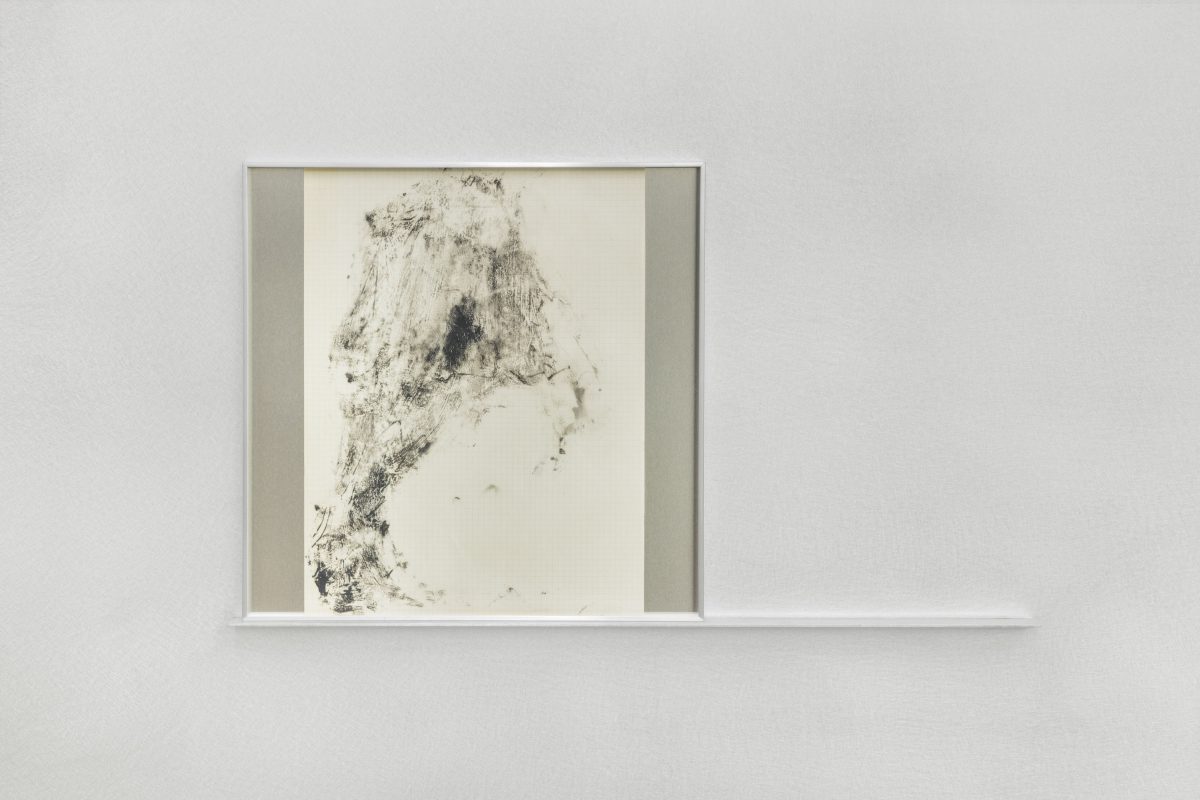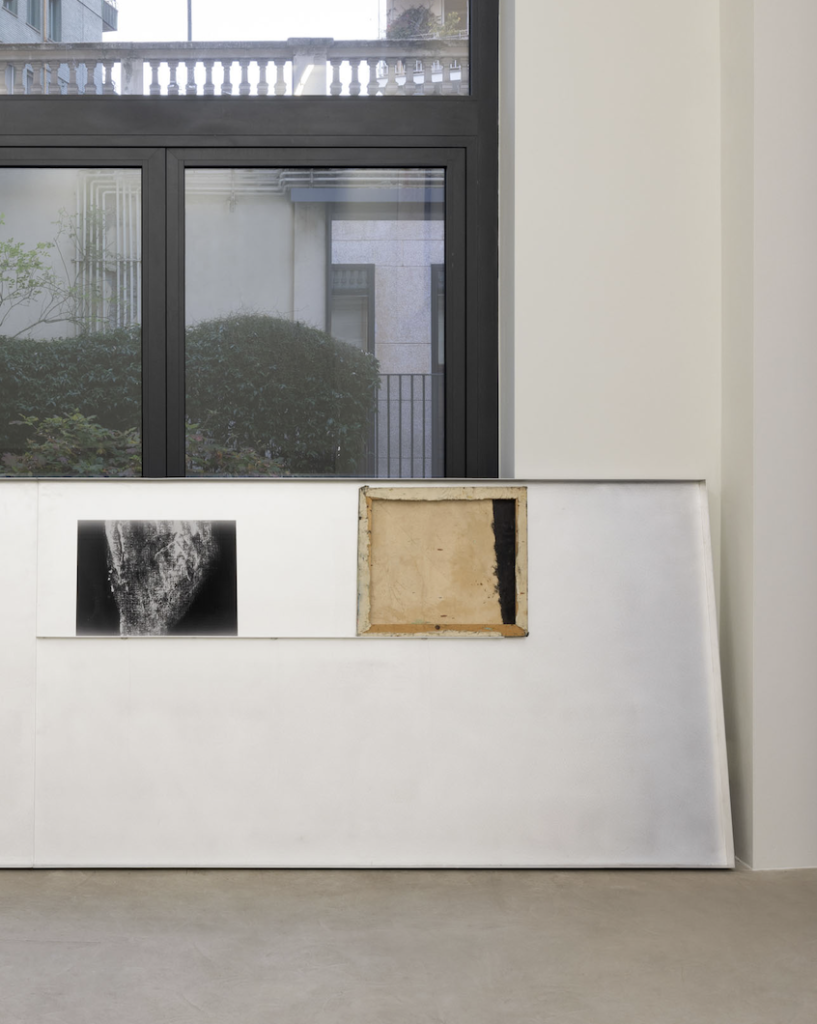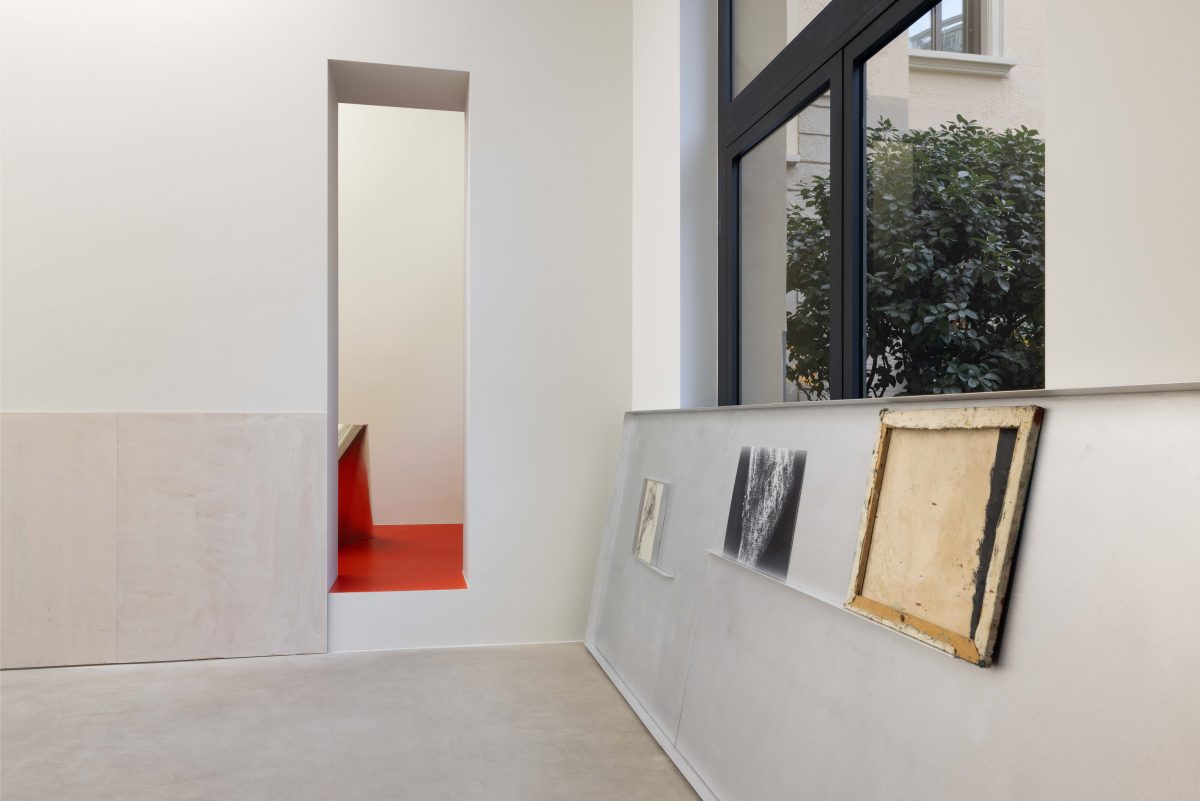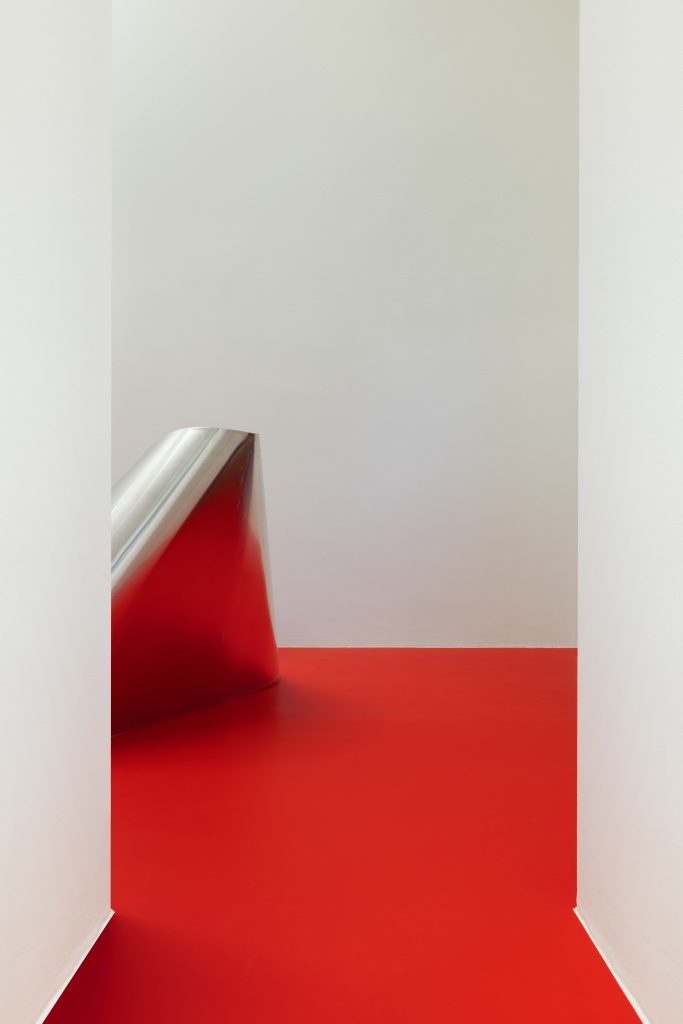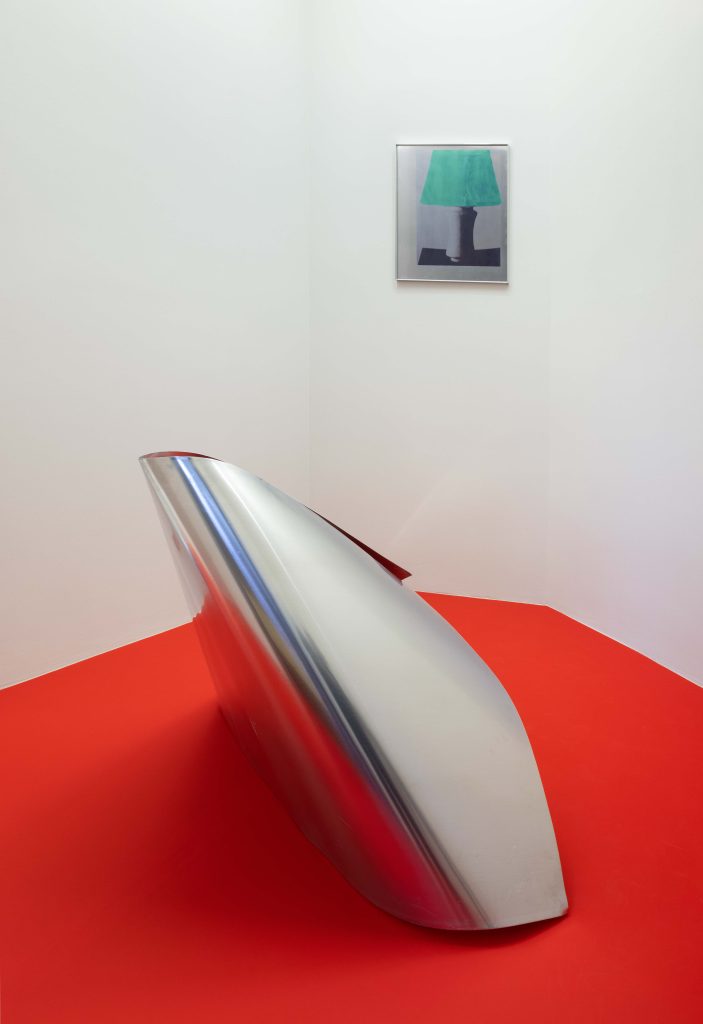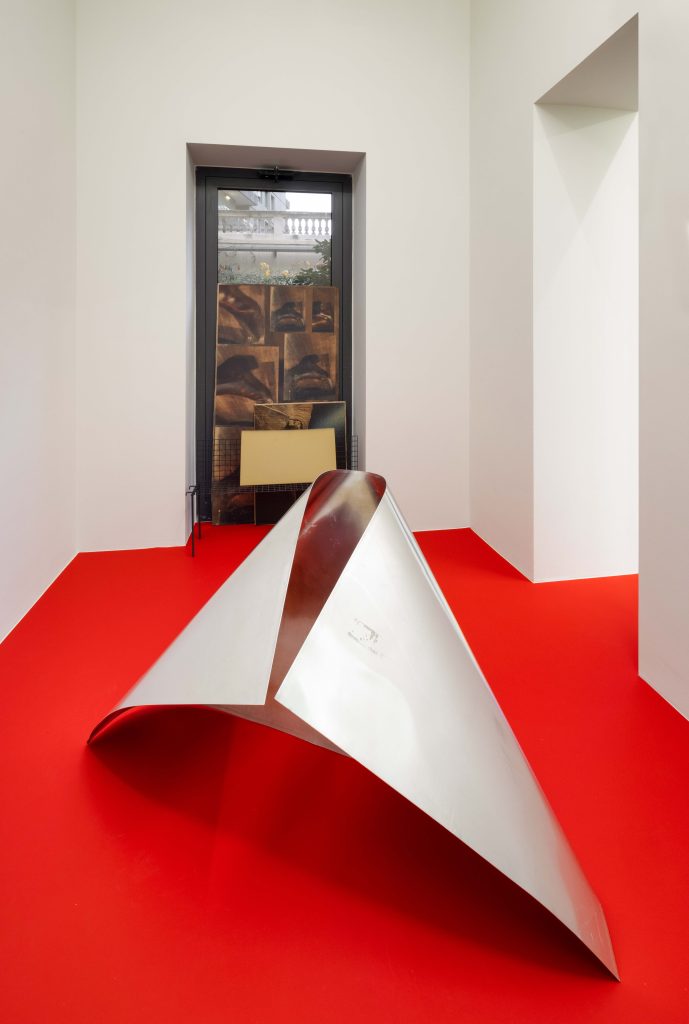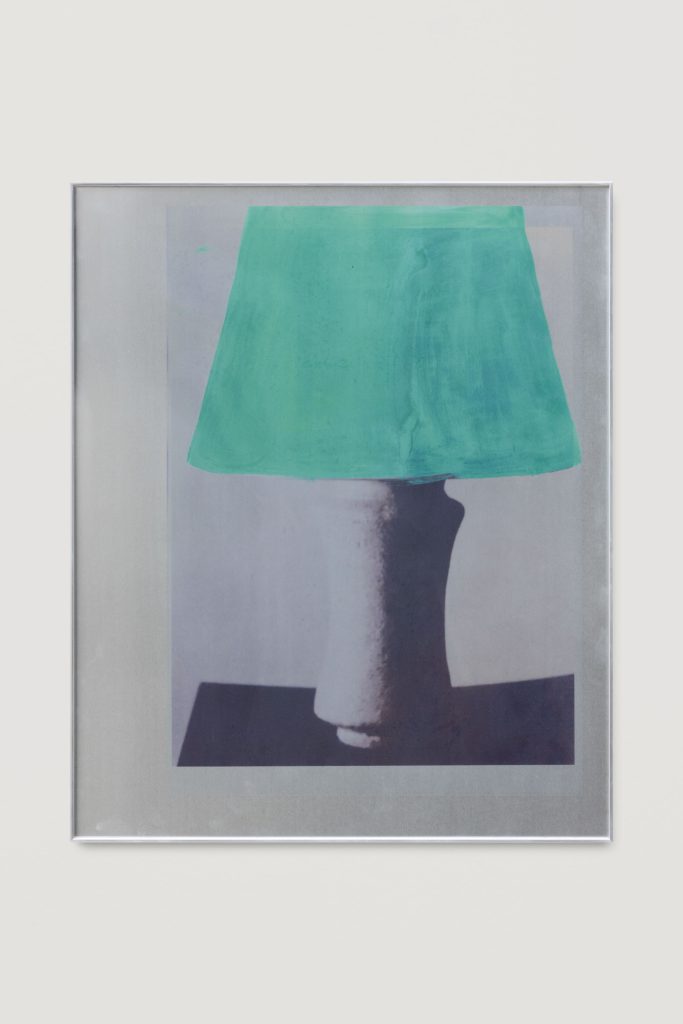
kaufmann repetto is pleased to announce Back Facing Front, Thea Djordjadze’s fourth solo show with the gallery, opening in Milan on November 20. The site-specific installation brings together newly conceived structures and reconfigured existing works. Interventions operated by the artist in-situ transform each element in a force with tendencies of its own, leaving it open to dissolve and then to be re-constituted in different, future activations.
For Djordjadze, the exhibition space solicits potential relationships between its architecture and the materials and forms that inhabit it for the duration of the show. Engaging with the symmetrical layout and minimalist features of the Milanese gallery, the artist conceived a wooden structure that runs along the perimeter walls, while wedge-shaped aluminum elements, originally devised for Djordjadze’s recent solo show at the Hamburger Kunsthalle, are positioned along the window front. The rectilinear volumes of transparent cuboids hover on top of the concrete floor, and a bright red carpet on a slightly higher level sets off the more domestic territory of a small, adjacent chamber. The modularity of the sculptural interventions recalls the display devices encountered in museums, but their meanings and functions are undermined by unexpected associations and hybrid employments. Elements that at first sight seem to evoke a purely formal function as supporting structures for something else – shelves, pedestals, vitrines – reveal themselves as sculptures in their own right. Their clean, essential outlines and geometric shapes are countered by the highly subjective physicality of objects that transpire manual manipulation or bear the artist’s bodily intervention, like the scratched surface of a plaster wall relief, or the gestural traces on aluminum sheets, bent by the artist’s own body into sculptural forms. The rejection of permanent and stable meanings and functions is part of Djordjadze’s critical scrutiny of contemporary art making and its institutional reception, which she undermines by process-driven, provisional interventions that respond to the physicality of the specific spatial and temporal frame of an exhibition.

